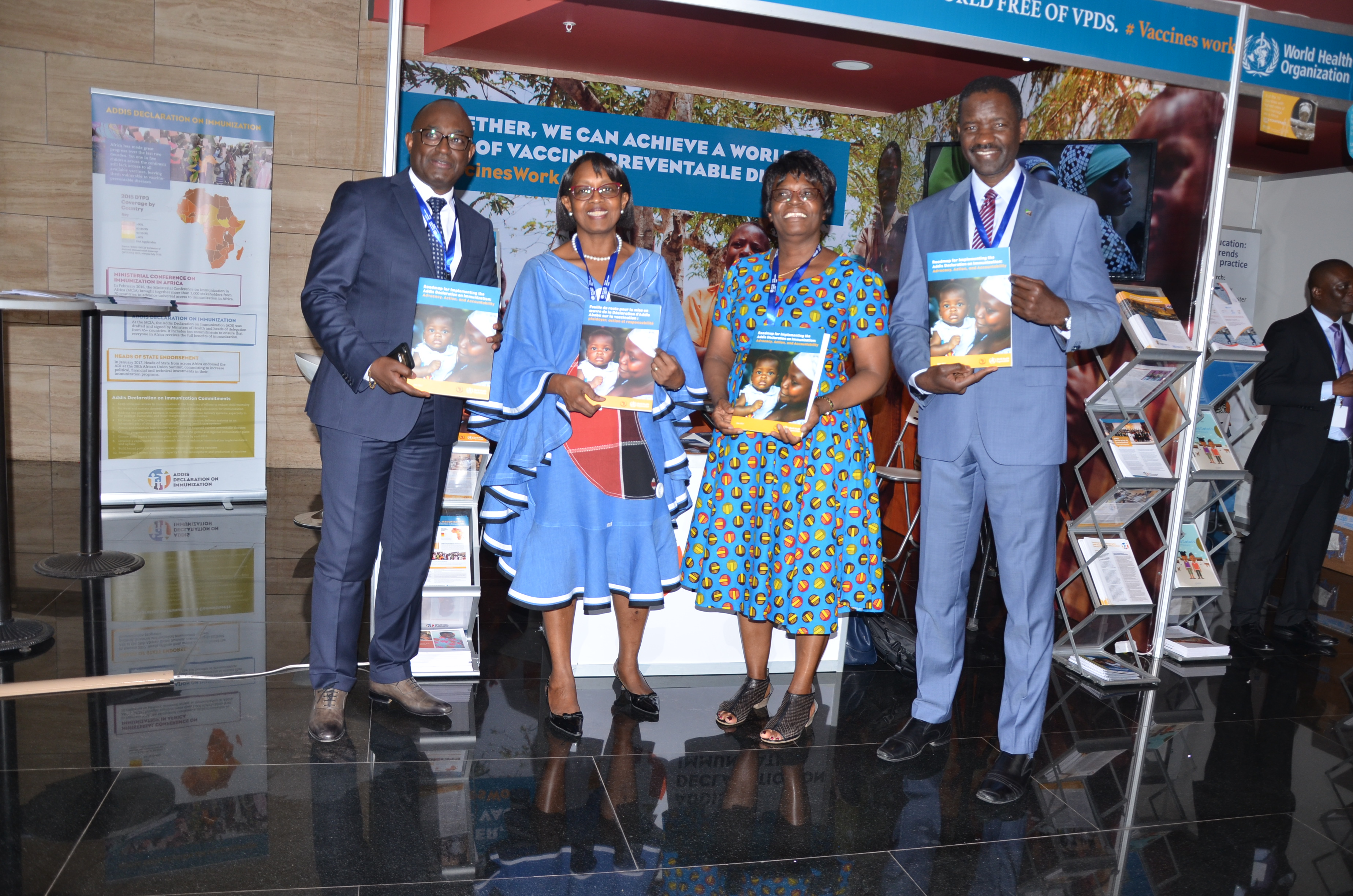By Haruna Gimba
A roadmap to guide the Africa Member States’ implementation of the Addis Declaration on Immunization (ADI) was officially launched on Tuesday last week at the first World Health Organization (WHO) Africa Health Forum in Kigali, Rwanda.
The roadmap was developed in close collaboration between the member states, the African Union (AU) Commission and the WHO Offices in the African Region (AFRO) and Eastern Mediterranean Region (EMRO), as well as immunization partners.
The document titled “Roadmap for Implementing the Addis Declaration on immunization: Advocacy, Action, and Accountability,” provides the African countries with three specific strategies to accelerate progress toward universal access to immunization in Africa.
 Document outlines strategies to ensure that everyone in Africa receives the full benefits of immunization.
Document outlines strategies to ensure that everyone in Africa receives the full benefits of immunization.
The strategies include: generating and sustaining political commitment and funding; strengthening technical capacity and overcoming barriers to access; and closely monitoring progress.
WHO Regional Director for Africa, Dr Matshidiso Moeti, said the Vaccines are one of the most effective public health tools available today, saying when children are given a healthy start, communities thrive and economies grow.
“The ADI roadmap will help guide and drive progress toward ensuring universal access to immunization for all children in Africa, no matter who they are or where they live,” he said. Routine immunization coverage has increased considerably across Africa during the last two decades. The percentage of children in Africa receiving the third dose of the diphtheria-tetanus-pertussis vaccine (DTP3) – a measure commonly used to evaluate the strength of routine immunization programs – has increased from approximately 57 per cent in 2000 to 77 per cent in 2015.
However, Health Reporters gathered that yet one in five children across the continent still lack access to all available vaccines, leaving them vulnerable to vaccine-preventable diseases. There are several significant barriers to vaccine access, including weak supply chains and insufficient data to identify coverage gaps at the local level.
The continent will also soon face a historic financing transition. As Africa nears polio eradication, critical funding for immunization through the polio eradication program is expected to decrease. Additionally, more countries in Africa are approaching middle-income status, which means that they will begin transitioning away from the funding of Gavi, the Vaccine Alliance. The ADI roadmap identifies strategies for confronting these challenges early to ensure immunization efforts are uninterrupted.
“Country ownership is more important than ever before to ensure that we sustain and build on the hard-fought gains we have made. By making continued political, financial and technical investments now, Africa can achieve a generation free from vaccine-preventable diseases,” said Dr Mahmoud M. Fikri, WHO Regional Director for the Eastern Mediterranean.
Expanding access to immunization will have tremendous positive effects for families, communities and entire countries. Every US$1 spent on childhood immunization in Africa returns US$41 in economic benefits. Commissioner for Social Affairs of the AU Commission, Ms Amira Elfadil Mohamed Elfadil, said leaders at all levels of government have identified universal access to immunization as an urgent priority and an achievable goal. She said: “Building on this consensus, Member States must now take action to implement their commitments – ultimately, catalyzing sustainable development across the continent.”




